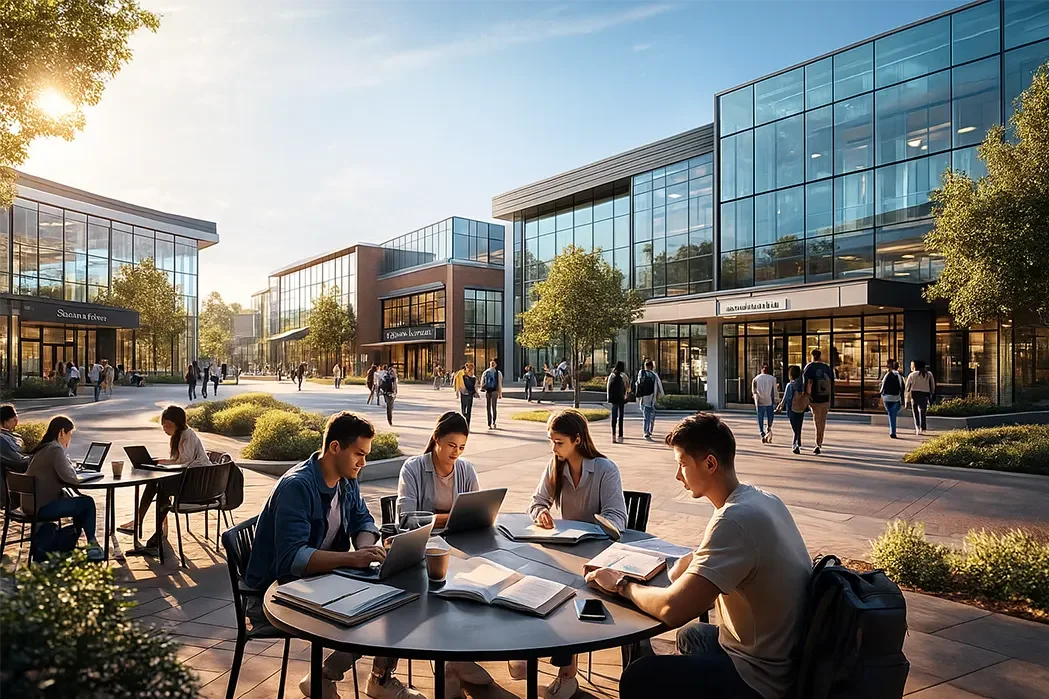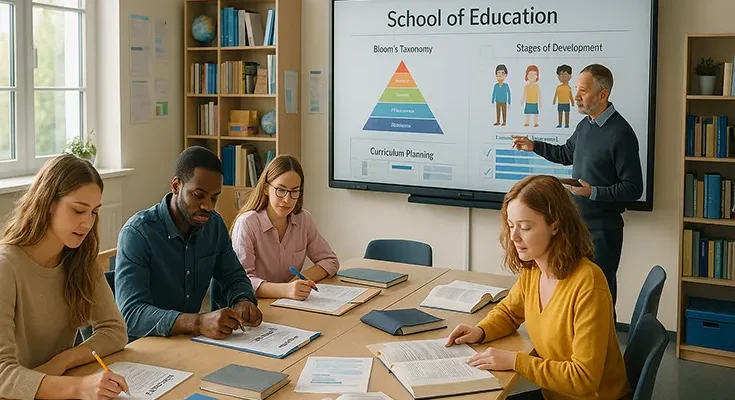For decades, the traditional model of teacher preparation relied heavily on theoretical lectures and a single, culminating student-teaching placement. While foundational, this approach often left new educators unprepared for the chaotic complexity of a modern classroom. Today, the School of Education is moving far beyond this model, transforming its curriculum into a dynamic “innovation lab” where aspiring teachers learn by doing, failing safely, and analyzing performance with surgical precision.
The School’s commitment to pedagogical innovation is not just updating content; it’s revolutionizing how future teachers are taught. This shift ensures graduates are not only masters of their subjects but are also adaptive, data-driven, and highly resilient professional leaders.
The Core Innovation: High-Fidelity Simulation Labs
The most significant departure from traditional training is the integration of High-Fidelity Simulation Labs into the core methods curriculum. These are not simple video role-plays; they are meticulously designed digital and physical environments where students practice specific teaching skills on simulated K-12 students—live actors or avatars trained to react authentically to instruction and behavior management cues.
In a traditional program, a student might learn about classroom management theory. In the [University Name] simulation lab, a pre-service teacher faces a virtual student refusing to put away their phone. They must respond in real-time, receiving immediate feedback on their use of non-verbal communication, tone, and de-escalation techniques. The scenario can be paused, replayed, and reviewed with faculty, allowing students to refine their approach until mastery is achieved. This methodology ensures graduates enter the classroom having already practiced high-stakes interactions—from parent-teacher conferences to managing acute student anxiety—hundreds of times.
This focus on deliberate practice in a low-stakes environment directly addresses the “reality shock” that contributes to high rates of teacher attrition in the first few years of service.
Faculty Spotlight: Dr. Elara Vance on Data-Driven Instruction
The excellence of the School is mirrored in its faculty, such as Dr. Elara Vance, a leading scholar in cognitive science and personalized learning. Recently honored with the prestigious [Name of Recent Award, e.g., National Education Research Association (NERA) Distinguished Contribution Award], Dr. Vance embodies the School’s commitment to bridging research and practice.
Dr. Vance’s work focuses on utilizing formative assessment data to immediately tailor instruction for diverse learners. Her courses go beyond teaching how to grade papers; she trains students on sophisticated educational data mining techniques to identify learning gaps in real-time. Her graduates are experts at using complex student response data—not just test scores—to iterate lesson plans, manage classroom grouping, and personalize learning paths. Her teaching methods, which often involve co-teaching sessions with local district principals, ensure her students grasp the administrative and logistical challenges inherent in implementing data-driven instruction at scale.
Integrating Essential Professional Skills
One of the key criticisms of traditional teacher colleges is that they often fail to equip educators with the non-pedagogical, yet essential, professional skills required for modern educational leadership. The [University Name] School of Education has integrated these skills into the core curriculum, moving them out of optional electives and into mandatory practice:
- Data Analysis and Literacy: Rather than just learning statistics, every student must complete a Mandatory Capstone Data Project where they analyze authentic district data (de-identified, of course) to propose a structural improvement for a local school’s learning outcomes.
- Collaborative Leadership: The program utilizes cohort-based, interdisciplinary Project-Based Learning (PBL) where education students collaborate with peers from the Schools of Public Policy and Business to solve complex educational dilemmas, such as designing a sustainable budget for a charter school or developing a community outreach plan for a new curriculum adoption. This collaborative framework ensures graduates can effectively lead teams, manage up to administrators, and communicate with non-educator stakeholders.
The Difference: Competence Over Compliance
The School of Education’s approach fundamentally differs from traditional models in its philosophy: it prioritizes demonstrated competence over mere curricular compliance.
| Feature | Traditional Teacher Training Model | [University Name] School of Education Approach |
| Skill Practice | One long-term, high-stakes student teaching placement at the end. | Simulation Labs offering repeated, deliberate, low-stakes practice on specific skills (e.g., transitions, questioning). |
| Feedback | Summative feedback from a cooperating teacher; limited objective data. | Immediate, video-recorded, analytical feedback tied to specific behavioral and pedagogical metrics. |
| Data Use | Learning to calculate grades and interpret standardized test scores. | Applied Data Mining for formative assessment and real-time instructional adaptation. |
| Focus | Content mastery and knowledge transmission. | Adaptive Expertise, Resilience, and Collaborative Leadership. |
By moving teacher training out of the purely theoretical and into a rigorous, evidence-based “innovation lab,” the [University Name] School of Education is ensuring its graduates are not just ready for their first day of class, but are prepared to lead the profession through the challenges of the 21st century.




